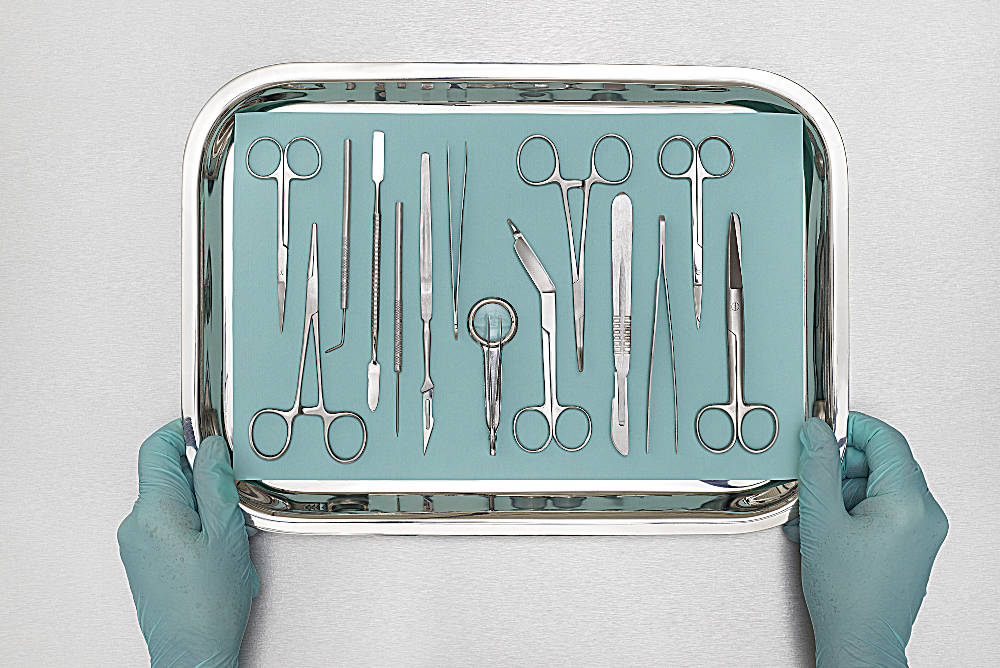Medical devices: they trained, they testify

Article updated in April 2024
Since April 23, 2024, AFNOR Certification has been designated by the ANSM (Agence Nationale de Sécurité du Médicament et des Produits de Santé) and the European Commission to issue the CE mark, the famous sesame attesting to a medical device’s compliance with Regulation (EU) 2017/745.
Obtain CE marking for medical devices
EU Regulation 2017/745 on medical devices will come into force on May 26, 2021. All players in the value chain need to focus on quality and risk management. For this, training is recommended.
The health crisis linked to covid-19 has delayed the entry into force of European regulation 2017/745 on medical devices by a year. It’s a good opportunity to check that you’ve got the right tools for the job. CE marking and ISO 13485 certification are two of them. But it’s also an opportunity to learn more about this complex subject, which concerns all players in the value chain, from manufacturer to user, importer to distributor. Meet three AFNOR Compétences trainees who have taken the “Understanding ISO 13485:2016 and its requirements” modules. Understanding ISO 13485:2016 and its requirements “and ” European regulation for medical devices – RDM 2017/745 “.
“Provide proof that risks are acceptable and under control”.
Fabien Taravalier is Quality Manager at Natural Santé, a company specializing in the development and distribution of herbal and mineral-based dietary supplements, syrups and nasal sprays. A range of products that partly fall into the category of medical devices. However, with the new European regulations on the subject, the contours of his job are constantly expanding. Fabien needed to be well prepared; hence the training. “Our products are distributed via three channels: organic stores, e-commerce and parapharmacy. In this context, we need to redouble our vigilance in terms of market surveillance and corrective measures. We must demonstrate that the potential risks associated with the use of the product are acceptable in relation to the benefit to the customer, and cooperate transparently with the competent authorities. “At the end of his training, Fabien has a clearer idea of how to implement the methodology for managing DM-related risks. Catherine Heureude, an expert trainer on the subject at AFNOR Compétences, helped him achieve his objective: to ensure that applying the new measures did not appear to be a constraint.
“Staying in continuous improvement mode
Tuba Kilicaslan Guzel is Quality and Regulatory Affairs Manager for Sterilmed France, a company which develops, manufactures and distributes sterilization containers for operating theatres. For her, it’s always interesting to look at her own business from the outside. It was during her training at AFNOR Compétences that she was able to do just that. The scope of the new regulatory requirements for medical devices is wide-ranging, and reshuffles the deck in terms of how we approach a product’s life cycle. Far from seeing training as a constraint, she saw it as an asset and a source of wealth. ” Even if, as a privileged partner of hospitals and clinics, the compliance of our products seems self-evident, we must constantly remain proactive in order to integrate changes in the European regulatory environment. This kind of training is part of our continuous improvement approach. “she explains. Tuba points out that the virtual classroom formula was not her first choice, but she’s come around to it, thanks to constant interaction. And he acknowledges the trainer’s flexibility in adapting to individual needs. In addition to the quality of the training provided, he chose AFNOR Compétences because of the proposed timetable. ” This was my second training course with this organization, and as the saying goes, never two without three! “
“Discussions, games and anecdotes
Rizlane Jassimi is a quality, process and methods coordinator in the food industry. She seized the opportunity of a professional break to take a training course in medical devices, a subject she had discovered during a job in mass retailing. The arrival of new DMs in supermarkets and the parapharmacy sector has prompted distributors to review their specifications and more clearly define the division of responsibilities. All the more so with the major changes brought about by European Regulation 2017/745. Rizlane’s objectives: to identify the new obligations required for the manufacture and distribution of DM, to better understand how to update technical documentation, and to find out who controls the manufacture and marketing of products. The DM sector is a vast and innovative market, and the over-the-counter segment (compresses, serum, thermometers, etc.) cannot do without safety and performance requirements to protect the consumer. ” I really enjoyed the training: everyone’s experience in the field encouraged discussion, and the use of apps, games and anecdotes made the session fun ,” says Rizlane. Between consultancy, awareness-raising and support, Rizlane intends to reconcile a number of technical and organizational approaches in his next role.